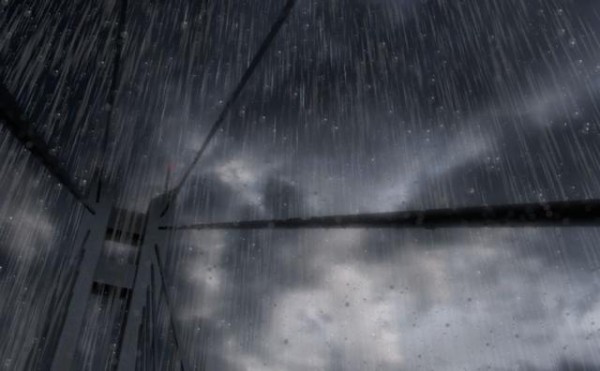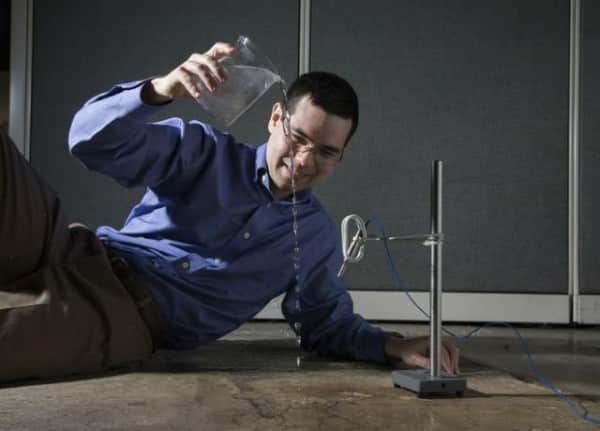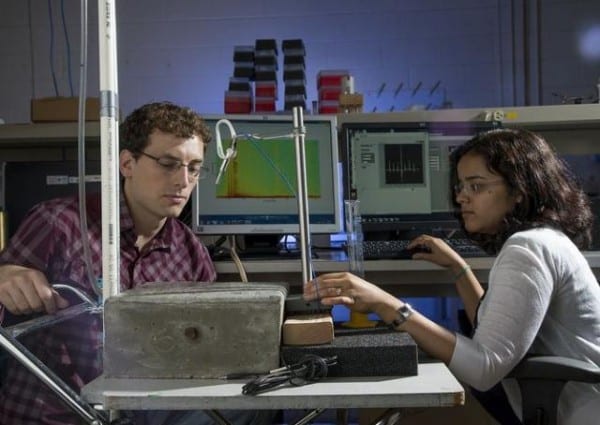Engineers do a lot of calculations and tests during making bridges. They even rely on some pretty low-tech methods in order to test the safety of a bridge. The very one that we might not know that is the sound of rain can help Engineers diagnosing concrete bridge’s structural integrity. How? The details right inside.
While building a concrete bridge, engineers usually do “impact-echo testing” (a process of hitting surfaces with an object to measure the sound or echo) with hammers and chains to test the bridge’s structural integrity. The process is labor-intensive and time-consuming. But still, a concrete bridge’s structural integrity is a must. Many engineers had been trying to find out a better and easy way of testing concrete bridge’s structural integrity. And finally Brian Mazzeo and Spencer Guthrie of Brigham Young University (BYU) have unveiled a new technique that will help engineers finding structural flaws in concrete.
When rain water hits “delaminated” (the separation of structural layers) concrete of a bridge deck, they produce acoustic responses. They found, when rain water falls on delaminated concrete, a dull, hollow sound is reflected back to the surface if there are any defects like a void or crack in the concrete.
Mazzeo said, “It’s like a ‘pop, pop, pop’ … it’s obvious when you hear it.”
When a vehicle across the bridge in rain, on-board microphones will capture those sound and transfer them to a system to find any changes in sound. Every time the sound should be the same. But if the system finds any different sound that means something is wrong at that point which indicates structural flaws in concrete.
Source : Brigham Young University
Thanks To : The Star
[ttjad keyword=”best-selling-gadget”]








It would have been better if researchers could create a way of finding the flaws of bridges using Air as air exists all the time but rain comes seasonally.